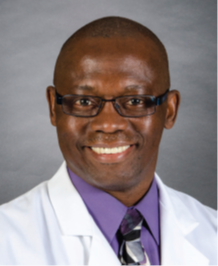ABPS Diplomates, Huber Matos MD and Caleb Awoniyi, MD, PhD, FAAA Explain the Vital Role Anesthesiologists Play in the Fight Against COVID-19

Without a doubt, 2020 was one of the most difficult years to be an anesthesiologist. The pandemic created a need for versatile and imaginative physician leaders which brought anesthesiologists to the forefront. Healthcare systems, and public officials sought the expertise of anesthesiologists to create a new system of triage, testing, perioperative intensive care, and safety. The anesthesiologist’s role naturally expanded beyond the operating room, to include managing critically ill patients in emergency rooms, wards, and intensive care units.

Anesthesiologists are involved in vital and dangerous roles, including airway and ventilator management of critically ill patients. Securing the airway and managing a patient who cannot survive without a ventilator is a fundamental skill of the anesthesiologist. Their extensive exposure with patients’ airways in particular tracheal intubation places them at high risk for acquiring the COVID-19 virus. Unfortunately, early in the pandemic some anesthesiologists lost their lives due to lack of understanding with regards to disease spread and lack of personal protective equipment (PPE).
Anesthesiologists are facing erratic work schedules, frequent night shifts, and longer workdays. Working longer hours without relief and seeing so many COVID-19 patients die alone without their loved ones can take a serious emotional toll. This added stress has contributed to the development of chronic fatigue, loss of appetite, sleep deprivation, mood swings, and many other mental and physical health problems. Still, they continue to provide comfort to patients and their families.
Despite the many challenges and increased risks, anesthesiologists continue to prioritize patient care, fill roles that did not exist and solve unfamiliar problems. They have risen to the leadership challenges posed by the pandemic and demonstrated their abilities as physicians and true critical care specialists.






